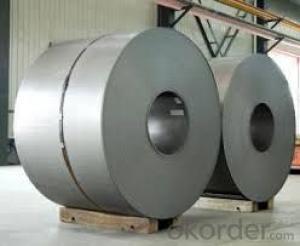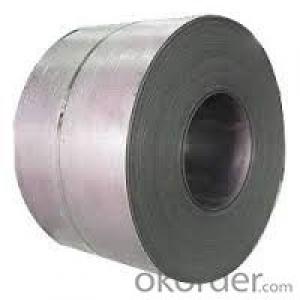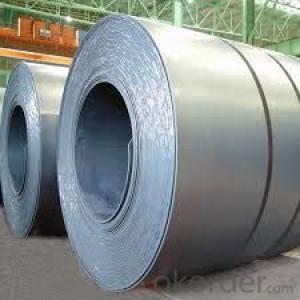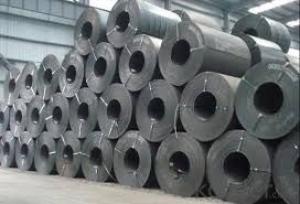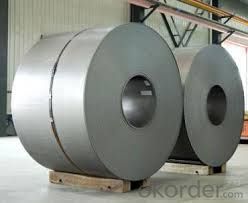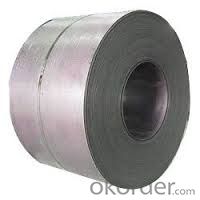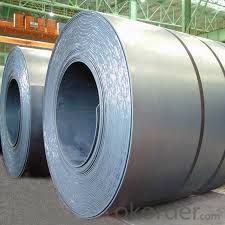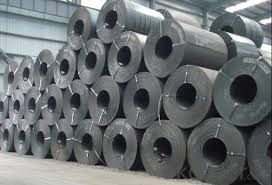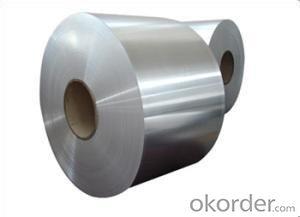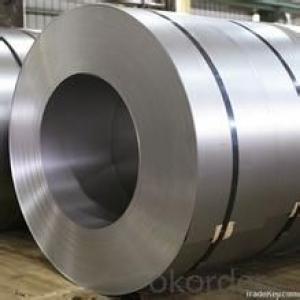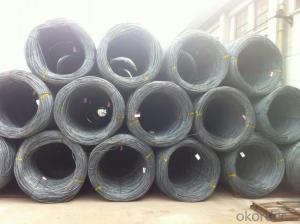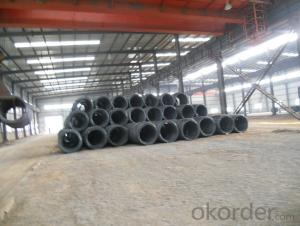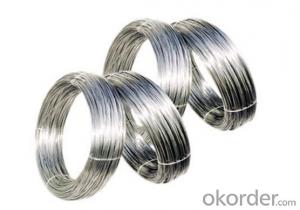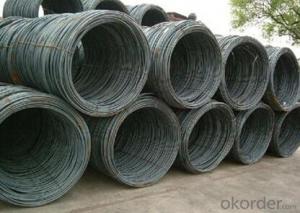hot rolled steel Sheet - SAE 1006/1008
- Loading Port:
- Tianjin
- Payment Terms:
- TT OR LC
- Min Order Qty:
- 100 m.t.
- Supply Capability:
- 500000 m.t./month
OKorder Service Pledge
OKorder Financial Service
You Might Also Like
Product Description:
Rolled to its final dimensions while it’s hot enough to scale, our hot-rolled steel is an amalgamation of the various qualities of steel. It can be in the form of plates, sheets and coils.
Description:
Product: | Hot Rolled Steel Coils/Sheets |
Material: | Q195,Q235,A36,SS400,S235JR,Q345,ST37-2, CCSB etc |
Standard : | JIS G3002 GB/T251B |
Technique: | hot rolled |
Thickness | 1.2mm to 200mm |
Tolerance of thickness: | :+/-0.03mm |
Width: | 750mm-2000mm |
Tolerance of width: | :+/-5.00mm (aiming to +/-2.00mm) |
Normal width: | 914mm, 1000mm, 1200mm, 1219mm, 1250mm,1500mm |
Length: | According to requirement |
Coil ID: | 508mm-610mm |
Coil Weight: | 10-25 Metric Tons |
Surface: | Black, Chromate, fingerprint resistant treatment, slight oiled or non-oiled, dry |
Port of Loading: | Tianjin/Shanghai port |
Packaging Details: | Standard export packing or according to the clients required |
Delivery Time | Within 30 days after received 30% deposit or workable L/C |
Payment Terms: | L/C,T/T |
Image:
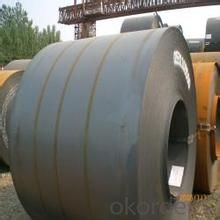
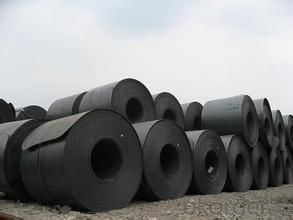
Our Hot-Rolled Steel Sheets and Coils are applied to a wide range of uses such as automobile, electrical appliance, machinery manufacturing, container manufacturing, shipbuilding, bridge, pipeline, and receive high acclaim from our customers for its excellent quality.
- Q: Which is more reactive? Zinc or Steel? And why?
- Zinc. Steel is an alloy consisting mostly out of iron, In the reactivity seris, zinc is more reactive than iron. Therefore, zinc is more reactive than steel
- Q: How are steel coils used in the manufacturing of exhaust systems?
- Steel coils are used in the manufacturing of exhaust systems as they provide the necessary material for forming and shaping various components such as pipes, mufflers, and catalytic converters. These coils are typically processed through cutting, bending, and welding techniques to create the required shapes and sizes for the different parts of an exhaust system.
- Q: What kind of steel should be used for constructing a steel building?
- In steel construction there are many standard types of steel used. Lots of different factors contribute to your steel choice. How tall is the building? Are you in an earthquake zone? Steel for the columns, or the beams? You might want to refer to the American Institute of Steel Construction for more information, they are the governing body in the US.
- Q: What are the dimensions of steel coils used in the furniture industry?
- The dimensions of steel coils used in the furniture industry can vary depending on the specific application and requirements of the furniture manufacturer. However, typically, steel coils used in the furniture industry have dimensions ranging from 0.20mm to 3.00mm in thickness and 600mm to 2000mm in width. The length of the coils can also vary, but it is commonly around 1000mm to 3000mm. These dimensions allow for flexibility in shaping and forming the steel coils into various furniture components such as frames, springs, and structural supports.
- Q: What does "steel roll number" mean?
- Steel coil number is the specification of steel coil.
- Q: How are steel coils used in the production of metal buildings?
- Steel coils are used in the production of metal buildings as they serve as the primary material for constructing the building's structural components, such as beams, columns, and trusses. These coils are unrolled and cut into specific lengths, which are then formed, welded, and assembled to create the framework of the metal building. The strength and durability of the steel coils ensure the longevity and stability of the structure, making them an essential component in the construction process.
- Q: What is the average lead time for receiving replacement steel coils?
- The average lead time for receiving replacement steel coils can vary depending on various factors such as the supplier, location, and specific requirements. It is recommended to contact the supplier directly for an accurate estimation of the lead time.
- Q: I'm searching for the elastic modulus of ASTM A653 galvanized steel sheet. Max points for first person with a response that includes web address of reliable reference - I just haven't found it yet. thanks!
- Aluminum is non ferrous so a magnet won't persist with it, and this is softer than steel. once you have desperate that, if it has previous paint on it, this is particularly helpful to apply a primer that corresponds to the paint you would be utilising the two vinyl or oil based, then paint. this is possibly no longer Galvanized, yet whilst this is, the unpainted floor with have a 2 colour steel Spackle look.
- Q: What are the common transportation defects in steel coils?
- Steel coils can experience various transportation defects. Improper handling or securing during transportation is a major cause of coil damage, resulting in dents, scratches, or tears in the steel. Coil edge damage is another issue that arises when the coils lack proper protection or rub against each other during transit, leading to deformation or breakage of the edges. Additionally, coil shifting occurs when the coils are inadequately secured or braced, causing them to move and shift during transportation, potentially causing misalignment or damage. Moreover, coil corrosion is a prevalent defect that arises when the coils are exposed to moisture or corrosive elements during transportation, leading to rust and deterioration of the steel. To prevent these common transportation defects in steel coils, it is essential to implement appropriate handling, securing, and protection measures.
- Q: Can i make holes in iron and steel with somekind of drill bit. All i have is metal drill bits. Mabey like 68 of them but i dont know wich one to use and if they will penetrate.
- It really depends. If you are drilling iron, I assume you are talking about cast irons and there are many different types, some are easier to drill (and machine) than others. For steels, there are many many different types of steels which can have a huge range of physical properties. In fact, your drill bits are almost certainly made of some type of steel alloy. If your drill bit has the same hardness as the steel you are trying to drill, it will be difficult to drill. If the steel is harder than the drill bit, you won't make a hole, you'll just break your drill bit into smaller pieces. There are drill bits that use carbide inserts or diamond composite inserts and these will drill through steel. You can do a quick check. Take a drill bit and, just by hand, see if it scratches the steel. If it does, then the drill bit is harder than the steel and you can probably drill a hole. If you have trouble drilling holes, consult a machinist. There are many factors which influence how well you can drill holes including use of cutting oils/lubricants, cutting speed, pressure, rake angle, etc.
Send your message to us
hot rolled steel Sheet - SAE 1006/1008
- Loading Port:
- Tianjin
- Payment Terms:
- TT OR LC
- Min Order Qty:
- 100 m.t.
- Supply Capability:
- 500000 m.t./month
OKorder Service Pledge
OKorder Financial Service
Similar products
Hot products
Hot Searches
Related keywords
